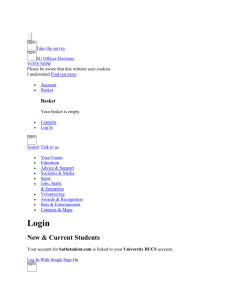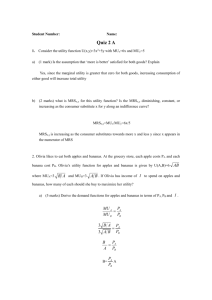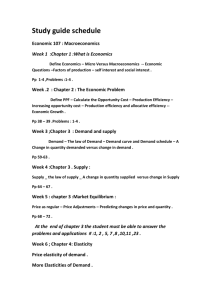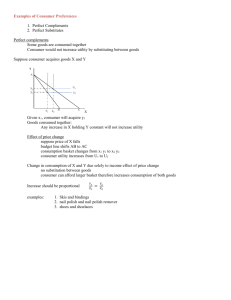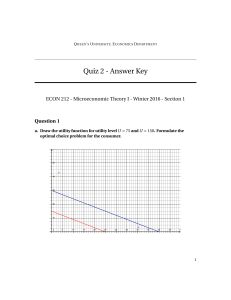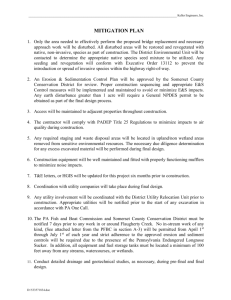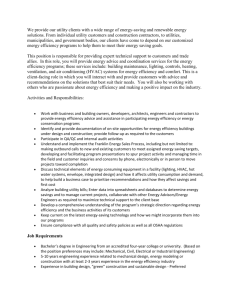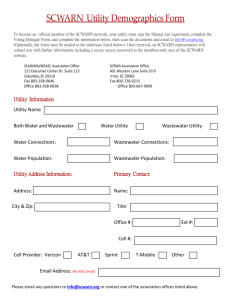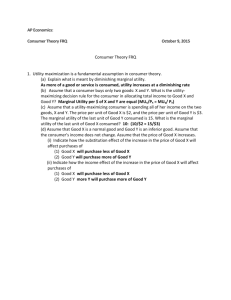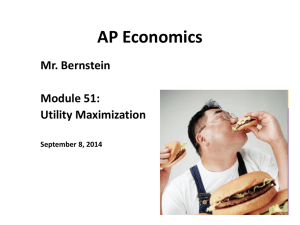Quiz 2
advertisement
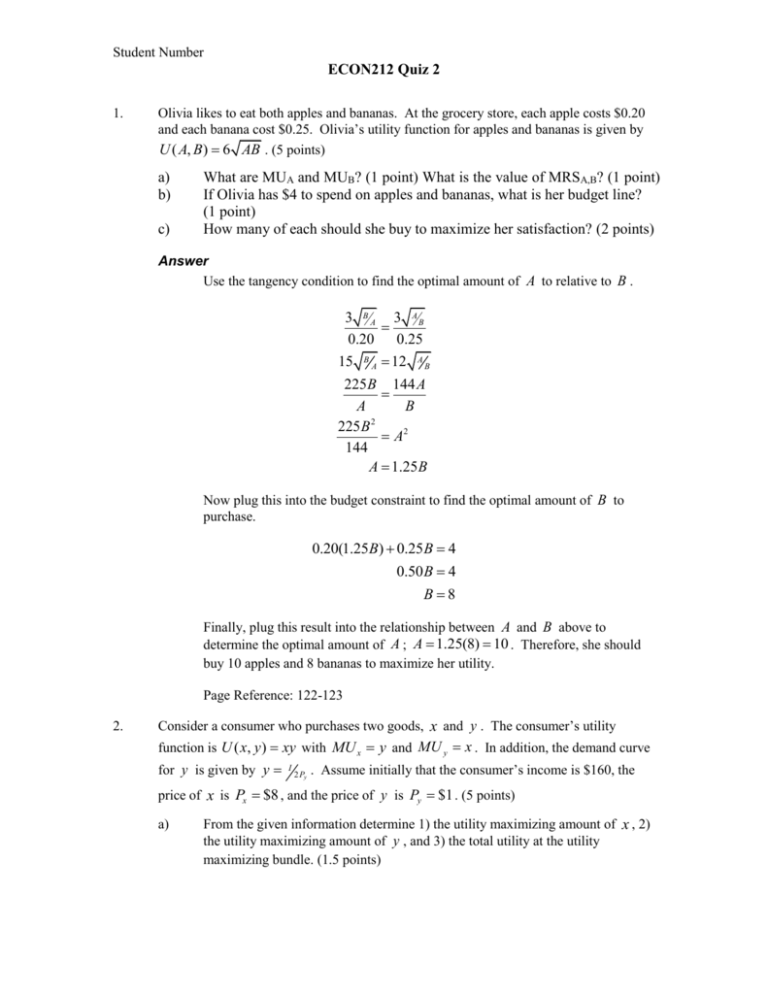
Student Number ECON212 Quiz 2 1. Olivia likes to eat both apples and bananas. At the grocery store, each apple costs $0.20 and each banana cost $0.25. Olivia’s utility function for apples and bananas is given by U ( A, B) 6 AB . (5 points) a) b) c) What are MUA and MUB? (1 point) What is the value of MRSA,B? (1 point) If Olivia has $4 to spend on apples and bananas, what is her budget line? (1 point) How many of each should she buy to maximize her satisfaction? (2 points) Answer Use the tangency condition to find the optimal amount of A to relative to B . 3 B A 3 AB 0.20 0.25 15 B A 12 A B 225 B 144 A A B 2 225 B A2 144 A 1.25 B Now plug this into the budget constraint to find the optimal amount of B to purchase. 0.20(1.25B) 0.25B 4 0.50 B 4 B 8 Finally, plug this result into the relationship between A and B above to determine the optimal amount of A ; A 1.25(8) 10 . Therefore, she should buy 10 apples and 8 bananas to maximize her utility. Page Reference: 122-123 2. Consider a consumer who purchases two goods, x and y . The consumer’s utility function is U ( x, y ) xy with MU x y and MU y x . In addition, the demand curve for y is given by y I 2 Py . Assume initially that the consumer’s income is $160, the price of x is Px $8 , and the price of y is Py $1 . (5 points) a) From the given information determine 1) the utility maximizing amount of x , 2) the utility maximizing amount of y , and 3) the total utility at the utility maximizing bundle. (1.5 points) Student Number ECON212 Quiz 2 Answer Using the demand curve for y we can find the utility maximizing amount of y . y I 2 Py 160 2(1) y 80 y Since each unit of y costs $1, the consumer will spend $1(80) $80 on y . This leaves $80 to spend on x . Since x costs $8, the utility maximizing amount of x is therefore 10 units. At this bundle, total utility is U xy 10(80) 800 . Page Reference: 159 b) Now assume the price of y increases to $2. Recompute the values from part a) at the new price. (1.5 points) Answer Again, using the demand curve for y we can find the utility maximizing amount of y . y I 2 Py 160 2(2) y 40 y Since each unit of y costs $2, the consumer will spend $2(40) $80 on y . This leaves $80 to spend on x . Since x costs $8, the utility maximizing amount of x is therefore 10 units. At this bundle, total utility is U xy 10(40) 400 . Page Reference: 159 c) Determine the decomposition basket that identifies the substitution and income effects as the consumer moves from the optimal basket in part a) to the optimal basket in part b). (1 point) Answer To determine the decomposition basket we note that this basket must satisfy two conditions. First, the decomposition basket must have total utility the same as at Student Number ECON212 Quiz 2 the initial prices, U ( x, y ) xy 800 . Second, the decomposition basket must satisfy the tangency condition at the new prices. This implies MU x MU y Px Py y x 8 2 y 4x These two conditions give two equations in two unknowns: xy 800 and y 4 x . Substituting the second equation into the first and solving implies x 200 14.14 and y 4 200 56.56 . Page Reference: 178-181 d) Identify the substitution and income effects as the consumer moves from the initial consumption basket to the final consumption basket. (1 point) Answer Initially, the consumer chose to consume 80 units of y and at the final basket the consumer chose to consume 40 units of y . Therefore, the substitution effect is the initial amount less the amount in the decomposition basket, 80 56.56 23.44 and the income effect is the amount in the decomposition basket less the final amount, 56.56 40 16.16 . Notice that these two amount sum to the total change of 40 units. Page Reference: 178-181
